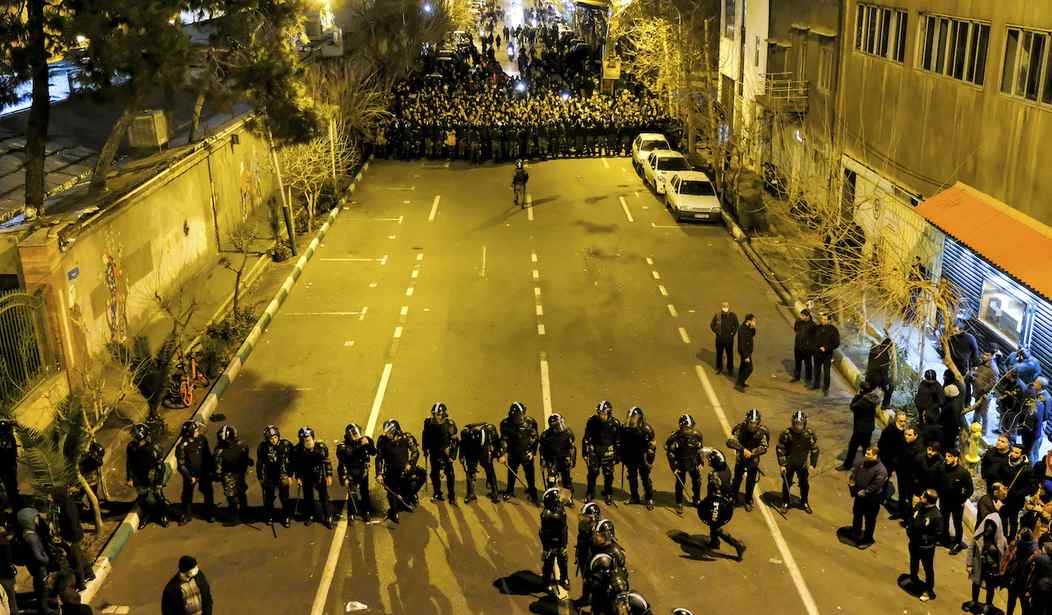It was recently revealed that Albania’s Special Court for Combating Corruption and Organized Crime has been investigating Iranian nationals in the country for the past four years, on suspicion that they have been acting as agents of the Iranian regime, with the goal of attacking and undermining Iranian opposition activists also living in the Balkan nation. In July, authorities carried out raids on several properties belonging to alleged spies and terrorist operatives and confiscated a trove of electronic devices and documents.
News of these raids and the underlying investigation should vindicate the People’s Mojahedin Organization of Iran (PMOI/MEK), which has spent the past several years fighting against a disinformation campaign that has focused on the group’s headquarters and residence in Albania. That modern mini city, known as Ashraf 3, which I had the pleasure of visiting last month, began taking shape in 2016 while around 3,000 PMOI members were being relocated from Iraq, where they had repeatedly come under attack from Iran-backed militants. The success of that relocation was a significant victory over the regime’s attempts at stamping out organized opposition, but as the present investigation makes clear, it did not prevent that campaign from continuing.
In fact, Tehran has already attempted to launch at least one direct attack on Ashraf 3. In March 2018, Iranian operatives were found to be plotting deployment of a truck bomb. The disruption of that led to Iranian diplomats, including the Ambassador and his deputy, being ejected from Albania, and evidently set in motion an investigation that identified other threats of a similar kind. The search warrants that were issued on July 12 explicitly acknowledged the court’s interest in preventing “any possible terrorist attack.”
Recommended
In June 2018, multiple European agencies cooperated to thwart a bomb plot which targeted the annual Free Iran World Summit, organized by the National Council of Resistance of Iran (NCRI) near Paris in 2018. The event was also attended by dozens of European and American dignitaries, some of whom would have no doubt been killed or wounded if the conspirators had succeeded in placing their explosive device near the stage, as intended, in their effort to kill the Resistance leader Maryam Rajavi.
The trial of that plot’s mastermind, a high-ranking diplomat named Assadollah Assadi, clearly established that he had been acting on orders from highest authorities within the Iranian regime. This in turn led many of the would-be victims of that plot to criticize Western powers for declining to pursue accountability for Iranian government officials or the regime as a whole.
Western lawmakers and media have rarely, if ever, challenged the regime’s predominant narratives about the MEK and the Resistance movement. Even in the months leading up to the raid on Iranian intelligence assets in Albania, a number of mainstream outlets published articles based on those narratives and featured statements from so-called “former members” of the MEK who were actually on the payroll of the Iranian Ministry of Intelligence and Security (MOIS) or the Islamic Revolutionary Guard Corps (IRGC).
Several of those individuals have now been revealed to be subjects of the ongoing Albanian investigation – a fact that outlets including The Guardian, Foreign Policy, The Independent, Der Spiegel, MSNBC, and even the BBC and the New York Times will have to reckon with as they look back on their coverage on the MEK and Ashraf 3. Several of such media outlets relied on interviews with individuals such as Hassan Heyrani or Gholamreza Shekari, as “ex-members” of the MEK making false allegations about the movement. A court in Hamburg ordered Der Spiegel and Frankfurter Allgemeine Zeitung in Germany to remove the false allegations from their articles.
As they do so, those same outlets should consider the impact of their credulous repetition of regime talking points on giving Tehran a sense of impunity to its pursuit of terrorism targeting dissidents and activists throughout the world, and its expectation of appeasement in spite of the recurrence of hostage-taking and other malign activities.
The Western world has seemingly persisted in that appeasement largely because of the mistaken belief that there is no viable alternative to the existing regime. But as the MEK itself has long sought to explain, with help from a politically diverse roster of supportive lawmakers and experts, that belief is grounded in talking points that Western media have picked up from the regime itself, or from its paid operatives in the expatriate community. Present developments in Albania attest to the fact that Tehran is still seeking to reinforce those talking points with direct attacks on the opposition, and it will continue to do so unless Western media and the international community directly challenge the regime’s strategy in ways they have been unwilling to do so far.
Ken Blackwell is the former U.S. Ambassador to the United Human Rights Commission.
























Join the conversation as a VIP Member